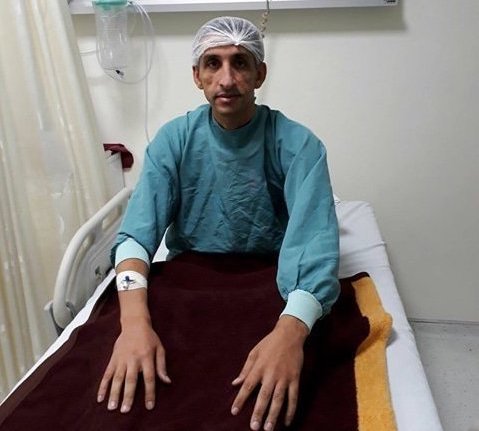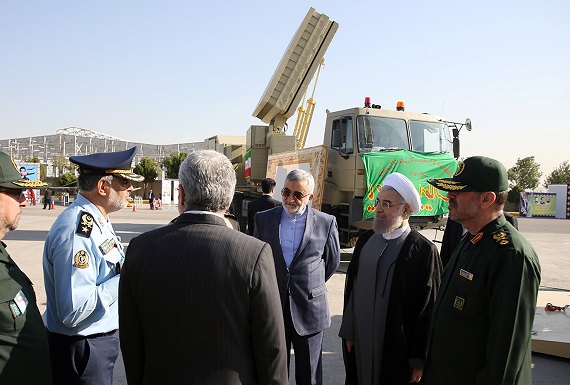Iranian Regime Denies Ahwazi Children Access to Water and Educational Supplies

BY-Rahim Hamid
It has been reported by the Unrepresented Nations and Peoples Organisation (UNPO) that the Ahwazi Arab people are much more affected by poverty, deprivation and marginalization along with other minority ethnic groups in Iran. One of the reasons for this is due tothe Iranian clerical regime racialist policies, which have carried out unruly practices against the Ahwazi Arabs for years that have resulted in their social, economic, and political exclusion.
The living conditions of the local Arab people in rural areas of Ahwaz are mostly devastated by the effects of long-term poverty and deprivation. The Ahwazi Arabs are in a desperate need of basic public services like roads, pavements, access to piped water, electricity, medical centers, sewage system and employment opportunities.
Karun County has one city: Karun. Since its establishment on January 23, 2013 (1392 Iranian year calendar), much more educational facilities are required.to solve educational priorities, Karun needs serious attention – with prompt action by the concerned authorities.
The Bohor village is the largest in its precinct, with an area of fifteen hectares in Soveyseh District of Karun city. It is home to 2,500 people including 600 families.
By crossing thick oil and gas pipelines near the school of the village, one could reflect on the long history of racial discrimination imposed on the Ahwazi Arabs by the Iranian central governments.
The village’s only connection to the Ahwaz-Abadan road is a three-kilometer stretch that still hasn’t seen the color of asphalt.
According to Khuz news agency, Arab local inhabitants were complaining at sugar cane and oil companies that are situated in close proximity to the village. Their complaints were due to the neglectfulness and indifferences they exhibited towards the Arabs by discounting socio-economic and environmental issues in the area. Arab locals claimed that these companies were just concerned with earning revenues and self-interest.
Hamid Nasseri, the Head of the Village Council has confirmed these complaints by the villagers and re-iterated proof of the claims by pointing to the dirt and dusty road in the village.
Nasseri mentioned that the allocated village development budget has been one billion Rials in the 2015 (1394 Iranian year calendar). He says, “the funds raised have not been adequate for the development of the village. While sugarcane and oil companies must pass through this dusty unpaved road to communicate with their agricultural lands and oil wells, so far none of them have raised any funding to contribute for its paving and asphalting.”
In Bohor village, girls are deprived of education due to the lack of schools. The largest village in Soveyseh District has only one elementary school named Shaheed Hakim, where 380 girls and boys are enrolled. Adel Nasseri, the principal of the school, has said that the school built in 1993 (1372 Iranian year calendar) has improper facilities for its students. He claims that the water in the school, like in other parts of Karun city, is completely undrinkable. For this reason, school officials have to buy filtered drinking water from outside which has the effect of increasing the overall expenses of a school which is already underfunded.
Nasseri stated, “Tables and benches in the classrooms are broken and worn out. Even though the school year is coming to an end, one of the teachers still doesn’t have a chair to sit on.”
A private company in the village has promised to provide the required wood for making the tables and chairs. The idea was that the school could make the benches and tables on its own with the funding provided. However, the promise has yet to be honored and remains solely spoken in word.
Adel Nasseri says, “Even though already the space in the classrooms is not enough for the existing pupils, an order from the Education Department decrees that one of the classes must be assigned to pre-elementary school kids, which has added to the difficulties of current students.”
With the lack of tables and chairs, the students have been going through significant hardship. There are three students per one chair to sit on. The students are having difficulty taking notes and writing on the small tables. The chairs are also too hard, leaving the kids feeling uncomfortable.”
Due to the dire circumstances, a number of concerned Ahwazi Arab youth have voluntarily arrived to Bohor village, rolled up their sleeves and begun building three additional classes for the elementary pupils.
Hammed Sharif, one of the Ahwazi youth volunteers’ team has said that after checking out the state of the village, they have noticed that students were facing a lack of educational space. For this reason, they have set out a plan for its development. The buildings in the school reminded them of a barnyard filled with animals. The interiors of the classrooms were dilapidated. The only teaching materials available were blackboards and hand drawn charts stuck on the walls. The school had only one restroom with two dirty small pitchers of water for washing; there was no soup, no towel or tissues. The place was so unsanitary that nobody used it. Often neighboring homes were allowing the students to use their own latrines.
Hammed added that some girls in the village were not able to proceed with further study due to their lack of secondary school education. But with the construction of these three classes they hoped that these girls could attend to their secondary schooling and continue learning.
He pointed out that there were 30,000 students, 1,400 teachers, 160 schools and 11,000 classrooms in Karun city, which were active with the majority of these schools being worn out. While they have pursued development for educational spaces in the deprived areas, a scarcity in resources meant that only some would be allocated enough to support spaces conducive to learning in the classrooms.
Referring to the contributions of some of the villagers to build the school, Sharif stated, “For the development of educational spaces in this village, we have had talks with officials of sugarcane and oil companies but are faced with their neglect. That’s why we have decided to advance the work through local donors.”
It is important to mention here that schooling for girls only exists at the elementary level. Arab villagers who could not afford to send off their own daughters to other schools missed out on opportunities they were capable of. This will have the effect of perpetuating the cycle of poverty for the families involved by severely limiting their future prospects.
With 30,000 students in the city, it is considered to be a prime incubator for the emergence of new talent. To be equipped as a modern classroom, pupils in Karun need software and hardware educational facilities. However, in all villages, classrooms are ill-equipped, and in most cases look much worse—they are run down. Most schools in Karun aren’t conducive to learning. They simply don’t have enough facilities and basic educational supplies.
Regrettably, these people sufferings are common across Ahwaz region, where deprivation is a norm rather than an exception, despite the fact that over 90 percent of the oil reserves claimed by the Iranian regime are located in the region. Many Ahwazi Arabs believe that the regime’s negligence and discriminatory policies mean they are not considered as citizens; despite nominally having the same rights given to all citizens, Ahwazis seem to be denied even the right to have rights.
BY-Rahim Hamid


























